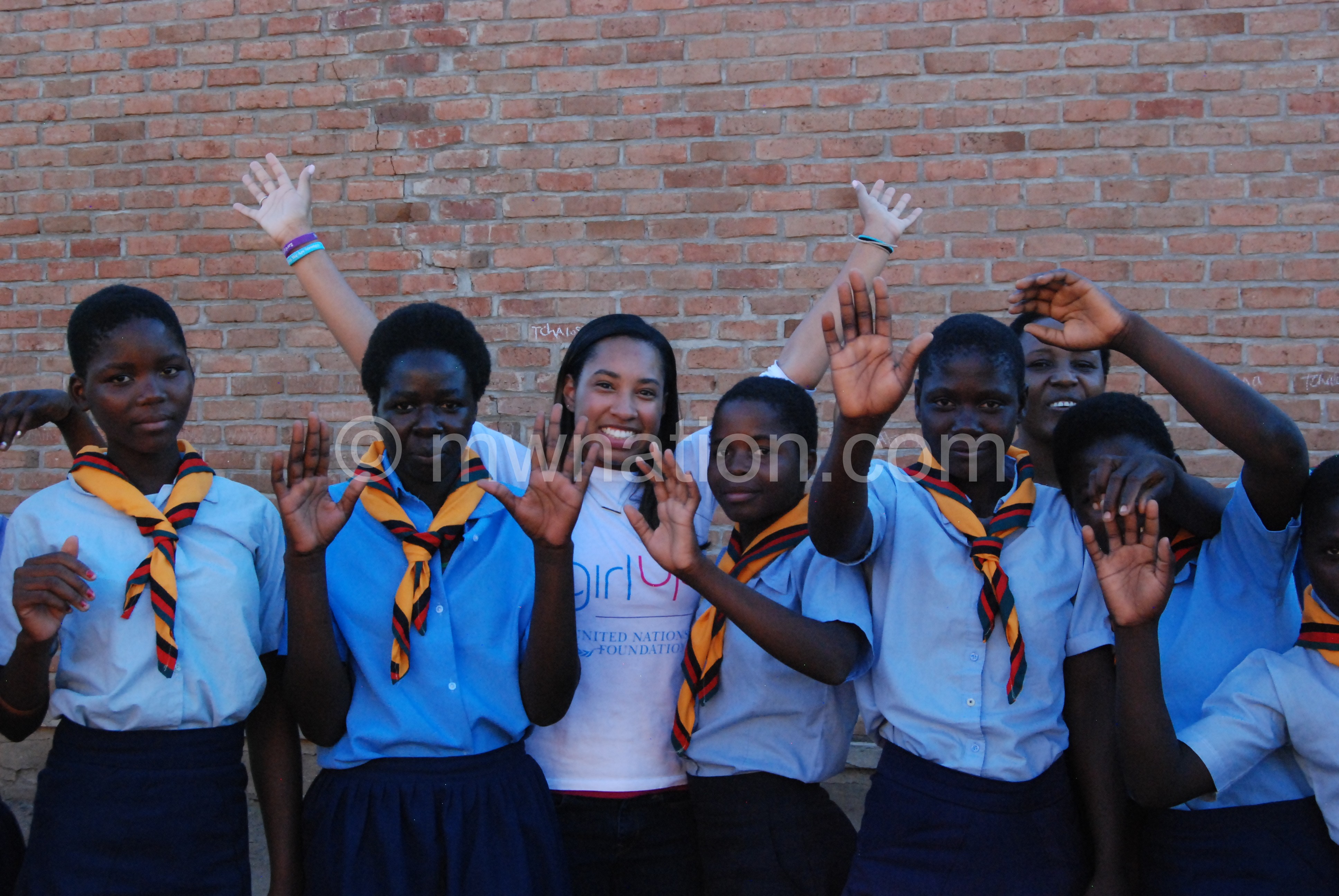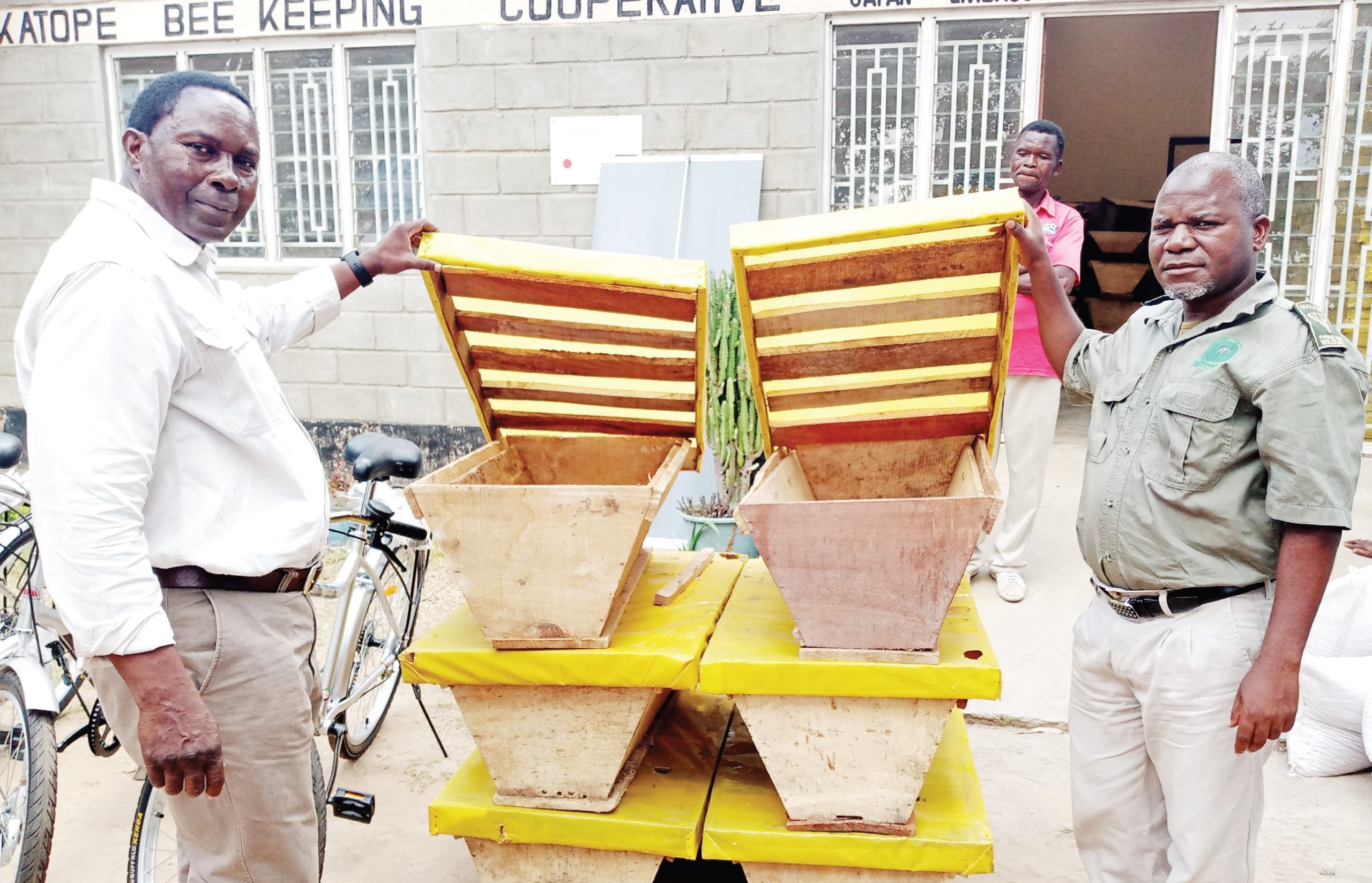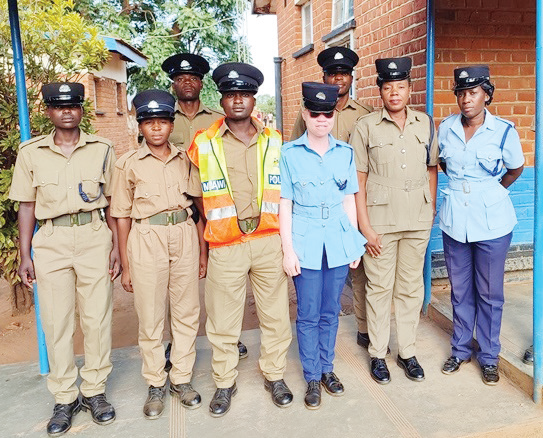Cycling to school, saving futures
The United Nations (UN) is reshaping an environment where adolescent girls keep going down the drain.
Imagine a world where a girl is kicked out of school when her sister is pregnant.

Margaret John, a student at Phanda Community Day Secondary School in Chikwawa, endured this blow in 2013.
“I cried daily,” the 15-year-old says. “I was in Standard Eight. My stepfather fumed. He ordered me to stop going to school. He thought my pregnant sister and I are all the same.”
Being penalised for a sister’s sake is a tad unfair.
But the worst heartbreak for the girl, who wants to become a journalist was staying home while her two brothers kept schooling.
“It appears I was being punished for being a girl,” says Margaret whose father died in 1998.
She personifies the difficulty faced by many girls in the country despite the push to ensure every girl learns and achieves her dreams.
In her remote setting, Sub-Traditional Authority Masache, teen pregnancies, child marriages, poverty, long distances, indifference and gender inequalities keep haunting adolescent girls.
One in two women in the country marries before their 18th birthday, according to UN Population Fund (UNFPA).
Besides, the dropout rates for girls remain high.
Rampant child marriages
Only 38 in 100 women aged 18-24 completed education in 2010.
Out of every 100 girls who begin Standard One, only about three will enter into secondary education. Of the trio, only one will enter university.
But with funding from the UN Foundation, through the UN Population Fund (UNFPA), there is a programme to support adolescent girls in Chikwawa and Mangochi to enroll and stay in school.
UNFPA is implementing the joint programme for adolescent in partnership with other UN agencies, the Department of Youth and Malawi Girl Guide Association (Magga).
A group of concerned mothers at the centre of the initiative met Margret’s guardians to explain the importance of educating girls and why she was safer in school than left to marry too early.
Konzere Zone primary education advisor Gerald Pengapenga credits the joint programme for raising enrollment from 3 931 at the start of the programme in 2013 to 4 769 at the shutdown in 2016.
“In five years, 15 schools in my zone have enrolled 5 317 girls. Actually, the numbers are still increasing because of community participation,” he said.
Even numbers of dropouts and absentees are falling—with 126 quitting school this year, down from 186 in 2013.
“Almost three in four dropouts are attributable to teen pregnancies. The rest get married due to poverty, peer pressure and parents’ rush for cash or cattle,” says Pengapenga.
STA Masache urges the villagers not to relent safeguarding girls’ right to education.
“More and more girls are remaining in school as community members are supporting them not to be lured into sexual relationships which endanger their education and lives,” says the traditional leader.
Meeting girls education needs
He thanks UNFPA and its partners for offering the girls from poor background school fees, uniforms, bags, shoes, bicycles, notebooks, pens, pencils and other educational needs.
Joyce Lifiyoni, 18, says the boost, especially the bike, has changed her life.
“When I was selected to Phanda CDSS, I had to walk up to 15 km to get to school. I wanted to quit school. I always arrived in class late and tired. I usually slept in class when lessons were in season,” recalls the Form Four girl.
Sometimes, she skipped classes to arrive home before sunset.
Not any more.
She is among almost 250 schoolgirls in Chikwawa who received bicycles; according to Chikwawa district youth officer Chigonjetso Chilomo.
They include about 25 former dropouts selected to Panda CDSS after re-enrollment.
Mercy Fraser, 18, was in Standard Eight at Konzere when she got pregnant.
“I spent a year out of school. Life was hard. My parents were angry. The man had denied responsibility. I didn’t know where to run. It’s a miracle that I successfully gave birth and returned to school. That’s why I christened my daughter Chisomo, grace,” she recounts. Mercy joined a youth club which offers—adolescents safe space to share their sexual and reproductive health challenges and explore solutions.
The groups empower boys and girls with vital information to make life-saving choices, including condom use and modern contraceptive methods.
Morgan Wood, a business student at George Washington University in the United States, is a member of the Girl Up Movement which raises funds for the UN Foundation.
Recently, she visited the remote setting in Chikwawa along with Simon Cowan, Julie Willing and Bailey Levschen.
She confessed being satisfied with the change happening among the girls in danger of sliding into marriage as a mere bicycle helping them to succeed in life.
“Early marriages and teen pregnancies make me really sad. Adolescent girls are supposed to be in school. Thousands of girls in the US and across the globe want them to learn and make their dreams come true,” says Wood.
She thanked mother groups and other local agents who work tirelessly to ensure the girls stay in school.





